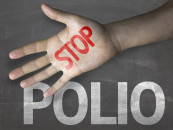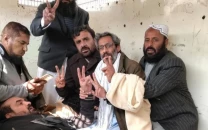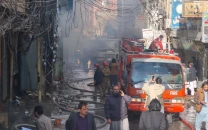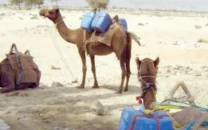Routine immunisation in Balochistan urged
Balochistan EPI holds advocacy sessions in connection with World Children’s Day

PHOTO: FILE
This was stated by Quetta Mayor Dr Kalimullah while addressing a group of councillors at the Quetta Metropolitan Office.
In line with the World Children’s Day, the Balochistan Expanded Programme on Immunisation (EPI) devoted the entire month of November to activities of advocacy with the various stakeholders in Quetta.
A series of advocacy sessions – involving representatives from local government, civil society, media organisations and selected parliamentarians – was held as part of the weeklong activities linked to the World Children’s Day.
Vaccination success low in Balochistan
The aim of the advocacy sessions was to accelerate and improve the uptake of routine immunisations for children in Pakistan in general and Balochistan in particular. It provided the stakeholders the latest information on challenges related to low immunisation coverage in the province with special focus on Quetta.
Routine childhood immunisation includes a set of scheduled inoculations, free of cost, administered from birth to 15 months in order to protect the child from diseases like diphtheria, pertussis (whooping cough), measles, pneumonia, diarrhea, tetanus, meningitis, polio, tuberculosis, and hepatitis B. Booster doses are later required for some vaccines.
Pneumonia remains one of the major causes of children’s death in Pakistan. A major reason for this is limited routine immunisation coverage – a little more than 50% of children are covered nationally, and the number of children immunised in Balochistan has been declining.
Vaccination campaigns begin in K-P, Balochistan
EPI Provincial Coordinator Dr Ishaq Panezai, addressing the councillors, said that the local government representatives can play an effective role in communicating that the vaccines were available for every child in Balochistan free of charge. It would cost Rs32,000 to fully immunise a single kid otherwise, he added.
The vaccine is being delivered through a partnership between the government of Pakistan and Gavi, the Vaccine Alliance that supports and finances vaccines in different countries, including Pakistan.
“Parents need to be motivated to bring their children to the EPI centre. We need to somehow communicate to them that these vials cannot travel long distances as they lose their efficacy if temperature is not maintained… and when a vial is opened, it is used for five to 20 children,” he added.
Dr Kaleemullah stressed the need to spread awareness, and said that unless all caregivers, including mother, father and grandparents, were fully convinced of the importance of the vaccine and ensured their children were immunised against all childhood diseases, the efforts being made by the government, Gavi and other UN partners to reduce under-five mortality rate would not be useful.
Poor routine immunisation could prove fatal for Sindh’s infants
“Immunisation is one of the most important advances in public health and it has saved more lives in the world than any other health intervention. Nevertheless, due to low coverage in the country, vaccine-preventable diseases still result in significant costs to individuals and society in Pakistan,” Dr Kaleemullah said.
Almost three million children miss out on a full course of routine childhood immunisation every year in Pakistan, leaving them vulnerable to life-threatening diseases.
Immunisation coverage rates across the country vary widely, with some districts seeing very few children protected against diseases such as diphtheria, pertussis, tetanus, measles and pneumonia.
With only 16% fully immunised children, Balochistan holds the lowest position amongst the four provinces. Major reasons behind the alarming situation are an inadequate allocation of financial and human resources to the EPI programme, management of the programme at the provincial and district level, non-availability of data regarding the population figures, vaccine availability, storage/handling and above all awareness and willingness of the people to get their children vaccinated.



















COMMENTS
Comments are moderated and generally will be posted if they are on-topic and not abusive.
For more information, please see our Comments FAQ